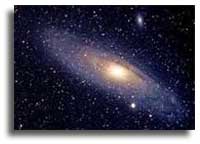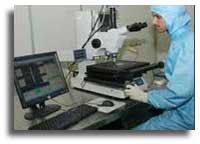ASTRONOMY
Introduction
Astronomy is the scientific study of celestial objects such as stars, planets, comets, nebula, star clusters and galaxies and phenomena that originate outside the Earth's atmosphere. Astronomy is also the study of the laws, which govern them, as also the effects, which they produce upon one another. It seeks to unravel the probable past history of heavenly bodies and their possible future development. It is the study of the motion, nature and constitution of heavenly bodies. It is a promising and amazing career for those who are interested in the mysteries of the universe and has a desire to unravel them. Since each country is going in for nuclear testing, the need for scientists in the field of Astronomy in India is increasing.
Nature of Work and Job Description
Astronomers are classified into specialized groups. Observational astronomers specialize in surveying objects in outer space with the help of telescopes. Stellar astronomers are the stargazers. They study stars in their entirety. Solar astronomers study the sun, and planetary astronomers, the planets and their environment. Theoretical astronomers are those who apply the principles of physics and mathematics to understand the nature of the universe. Cosmologists study the history and the structure of the universe as a whole. Astronomy, sometimes considered as a sub-field of Physics is further divided into several branches such as Astrophysics, Astro meteorology, Astrobiology, Astrogeology, Astrometry, Cosmology, etc. All these branches together help to unravel the mysteries of the universe. In the professional level, astronomy is divided into observational astronomy and theoretical astrophysics.
While the former deal with observing celestial bodies by using telescopes, binoculars, cameras, unaided eyes, etc and collecting data for building and maintaining instruments; the latter is concerned with data analysis - finding out the conclusions of observations of computers and explaining the observational results. Theoretical astrophysics is more analytical and astrophysicists model data. The work consists of monitoring pollution and working as instrumentation or software specialists. Space exploration and research provides jobs that directly benefit the Industry. It gives high return on research investments, and benefits the public through spin-off technologies that improve the quality of life. Jobs also exist with observatories not only in India but all over the world.
Job Prospects and Career Options

A beginner in the field of astronomy may be inducted as a researcher into an existing team which would be already working on a project. Ph.D holders begin their careers in a postdoctoral research position, in which they may work with experienced physicists as they continue to learn about their specialty and develop ideas and results to be used in later work. Initial work may be under the close supervision of senior scientists. Depending on their areas of specialization, astronomers are classified into various groups like observational astronomers, stellar astronomers, solar astronomers, etc.
Most jobs in the basic research and development usually require a doctoral degree. The Ph.D. holders ultimately teach at the college or university level. Master’s degree holders are qualified for many jobs in manufacturing and applied research and development. Some master’s degree programs prepare students for specific research skills that does not require a Ph.D. Bachelor degree holder in this field are often qualified as technicians, research assistants or other types of jobs. An astronomer usually works for the government, defence and space research organizations, electrical and electronic equipment manufacturers, etc.
They may work for commercial/ non-commercial research, development and testing laboratories, observatories, planetarium, science parks, etc. Degree/ Diploma/ Doctorate holder in these disciplines can find job opportunities in major establishments like the Indian Space Research Organization (ISRO), the Vikram Sarabhai Space Centre (VSSC), Space Physics Laboratories, Space Applications Centres, etc. One can also join non-profit organizations like the Association of Bangalore Amateur Astronomers (ABAA) which is involved in telescope making, organizing observation sessions for the public and popularization of Astronomy.
Eligibility

Thereafter, take a master's degree in Physics or Astronomy. After the successful completion of MSc, one can do specialization in astronomy leading to Ph. D. which enables one to become an astronomer/ astronaut/ astrophysicist or a scientist/ research officer, etc. in the field of space research. For doing Ph.D, which is mandatory to do research, one should appear for the Joint Entrance Screening Test (JEST) examination. For pursuing a career in Instrumentation/ Experimental Astronomy, after plus two one can go for Bachelor of Engineering (BE) in Electrical / Electronics/ Electrical Communications. An engineer with a B. Tech or BE degree could also enter the field as a research scholar of analytic thinking and imagination, logic and intuition, to answer the most fundamental questions about the cosmos.
Remuneration

Courses
- Diploma in Astronomy and Astrobiology
- M.Sc. Astronomy
- M.Sc. Astrophysics
- M.Sc. Meteorology
- Ph.D. Astronomy and Astrophysics
- Ph.D. Astrophysics
- Ph.D. Atmospheric Science and Astrophysics
Institutes
Astronomy |
Recruiters & Companies
Indian Space Research Organization
The driving force of ISRO is the vision of Dr. Vikram Sarabhai. The scientific activities of the centre include development of satellites, launching vehicles, sounding rockets and ground systems. Ph.D candidates are invited to register with ISRO online. Centralized Recruitment of Scientists/Engineers are carried on from time to time.
Bhabha Atomic Research Center (BARC)
Bhabha Atomic Research Center (BARC) is a premier multi disciplinary Nuclear Research Centre of India for advanced research and development covering the entire spectrum of Nuclear Science and Engineering.
Council of Scientific and Industrial Research
The Council of Scientific and Industrial Research, CSIR has been contributing to the development and realization of scientific talent to the national asset. CSIR is conducting various schemes of scholarships and fellowship to the deserving researchers. CSIR offers job opportunities for Scientists and technologists as well.
Indian Council of Agricultural Research, ICAR
Indian Council of Agricultural Research ICAR is the nation's premier body designated to conduct agricultural research and development. There is wide variety of career opportunities for those who have graduated in the disciplines of Agriculture and allied sciences in teaching, research and transfer of technology. The Agricultural Scientists Recruitment Board is the branch conducting recruitments of agricultural scientists.
Aryabhatta Research Institute of Observational Sciences, ARIES
Aryabhatta Research Institute of Observational Sciences is an autonomous body under the Government of India's Dept. of Science and Technology. ARIES undertakes researches in astronomy, astrophysics and atmospheric physics and related areas. ARIES offers challenging opportunities to motivated researchers in theory, observation and instrumentation.
Indian Association for Cultivation Of Science, Kolkata
IACS is the institute in India devoted to the pursuit of fundamental research in the frontier areas of basic sciences.
Indian Institute of Tropical Meteorology
Jobs and Fellowships are available in this Institute for candidates interested in this discipline.
Desired and Essential Skills
The essential quality to become an astronomer is curiosity, enthusiasm and greater concentration. They should have above average intelligence, high imagination, persistence, problem-solving and analytical skills and must possess both mathematical and computer skills. Loads of patience is required in this field as the astronomers has to work long for irregular hours. Excellent oral and written communication skills are also important because most astronomers are expected to work as part of a team. They must be capable of explaining scientific phenomena and convey the information in an easily absorbed format and language.
